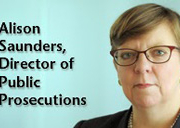committee stage takeaways
The committee reviewing the Terminally Ill Adults (End of Life) Bill has finished its line-by-line review of the bill. The amended Bill has been published, and it would be worthwhile for all health professionals to read for themselves what is being proposed. Nearly 600 amendments were submitted, but most were rejected. Of those accepted most came from the bill sponsor (about 100) while block voting (from the majority of committee members already in favour of the bill) contributed to the fact that only around 30, mostly minor changes, were accepted from those who had chosen not to vote for the Bill at second reading.
It isn’t possible to succinctly summarise all the discussions, but here are three notable takeaways from the discussions and the amended Bill as it has emerged from the committee:
1: judge out, panel in
The biggest change is the removal of the high court sign-off in favour of a new commission and panel structure. Many had said before Second Reading that the judge element was undeliverable, which likely drove this change. When the idea of panels (a lawyer, a psychiatrist, and a social worker) within a new Voluntary Assisted Dying Commission, in place of the judicial step, was first reported, CMF blogged on it. Our initial concerns remain unaddressed.
judge out = impartiality lost
A judicial step would have upheld a publicly accountable and impartial application of the law with judicial transparency and powers such as taking evidence under oath and the right of appeal. This loss is notable. It is also notable that the implementation monitoring has been removed from the Chief Medical Officer and passed to the new commission, which is now essentially tasked to monitor itself. This again feels like a loss of impartiality.
panel in = wrong time, wrong place, wrong question
The bill sponsor is referring to these as ‘multidisciplinary panels’ and claims have been made that these panels will broaden the assessment of the patient beyond a capacity assessment and so act as an enhanced protection. The Bill simply does not back up these claims.
The committee did not take up amendments to move towards a truly multidisciplinary or psychosocial assessment of the patient, or even merely to mandate asking the patient ‘why’ they wished to end their life by suicide. Rachel Hopkins MP said that the amendment should be rejected (it was) as the patient should have a right to choose assisted suicide and say to their assessor, ‘it is none of your business why I want to pursue this legal course of action down the line’. (11/3/25 Hansard)
The panel contains professionals capable of offering a psychosocial assessment but they are deployed at the wrong time (at the end of the assessment process), in the wrong place (only needing to ‘hear from’ the patient over the phone and not be with or ask any questions to the patient or their family in-person) and being asked the wrong question (only being asked to check up on previous capacity assessments and criteria checking). The Royal College of Psychiatrists has explicitly stated that the Mental Capacity Act is ‘not sufficient for the purposes of the bill’. The presence of a psychiatrist simply to check if this insufficient tool has been ‘rightly applied’, appearing in an effectively hamstrung professional role, must not be allowed to offer false reassurance.
2. the Bill is broader than advertised
Eligibility is not limited to the imminently dying or those with intractable symptoms.
Patients could shop around different doctors to find two who agree their death ‘can reasonably be expected within six months’. (Clause 2(1)b) It’s not a very high bar (a 51 per cent chance?) on something already as imprecise as prognostication. Doubtless, some who would have lived much longer will be found eligible. Also, no physical symptoms at all are required. If they are present, we might almost be reassured that a referral to palliative care should now be offered (5(5)c) except that there is no requirement that a specialist assessment is actually available in a reasonable timeframe, nor that it is actually undertaken at all, nor that reasonable treatments are provided.
Feeling a burden, financial worries, feeling low, or lack of local services would be perfectly legitimate reasons to make the capacitous choice to be assisted in ending your life by suicide under this Bill. The desire to detect coercion, including training assessors on coercive control and financial abuse, is good as far as it goes, but there is nothing to protect people from a shifting sense that others think they ought to consider ending their life through suicide (including their doctor offering this to them unsolicited as one of their options (Clause 5(2))). After all, when do doctors offer options they don’t expect you to consider? The path from option to duty isn’t long, especially when this option is offered fully funded, while the availability of other options (eg social and palliative care) may be significantly more patchy.
3. the Bill lacks crucial details
If it is passed, the Bill leaves a lot to be worked out by regulations and codes of conduct – that’s why the government have asked for an unprecedented four years to work out the details before the legislation comes into force. MPs will be voting on trust on these matters, leaving space for the Bill’s sponsors to paint a picture of what regulations might include while offering no such guarantees. It’s important to look at the Bill itself. MPs must vote on that rather than on wishful thinking about future regulations.
Here are some unanswered questions:
who is delivering this?
The Bill is silent on how state-funded assisted suicide services will be delivered. Clause 38 would give the Health Secretary a duty to commission a service to deliver these services, but MPs would be asked to vote the Bill through without knowing what form those services will take (and future Health Secretaries may perhaps choose a different mechanism of delivery).
Would a private company be commissioned to provide these services outside the NHS and for profit? Would they sit within the NHS, as has been made possible by saying the NHS Act can be re-understood so that ‘improving health’ includes assisting death? If the service is delivered within the NHS, where will it happen? Will it share the current funding for palliative care? Kit Malthouse MP even implied, after an amendment to the Bill enabling hospices to refuse to allow assisted suicide on their premises was rejected, that such hospices should lose their funding. We have written elsewhere about the committee’s rejection of institutional opt-out within the bill.
which doctors are involved?
The bill leaves it to later regulations to specify ‘the training, qualifications and experience’ of the coordinating doctor (Clause 7(6)) and independent doctor (Clause 10(9)). A picture can be painted of a very experienced doctor or one who knows the patient well and has cared for them for years, but the Bill simply does not require these things. Perhaps we will instead see full-time ‘death doctors’ with little broader experience. Many found Liz Carr’s documentary interview with Canadian doctor Dr Ellen Wiebe, who runs a clinic where she has assisted hundreds of deaths, rather sinister; this Bill could be delivered by similar ‘death doctors’ in the UK.
The Bill also leaves to regulation the possibility of the coordinating doctor authorising another doctor to carry out some of their function (Clause 24). If the workload becomes unmanageable, should a more senior doctor be able to delegate waiting with the patient until they die to a Foundation Year One doctor just starting out in the profession? They would be paid less per hour, so a private provider may find this preferable.
And there have been some amendments accepted for training requirements so that, for example, training in respect of domestic abuse, including coercive control and financial abuse, is mandatory. This seems a good addition, but it becomes almost meaningless given that the length and depth of training are totally undefined. An Australian doctor proudly told the committee they required a two-day course for their assessors (Dr Fellingham, Hansard 29/01/25). Perhaps this will all end up crammed into a half-day e-learning module.
which drugs will be used?
‘The Secretary of State must, by regulations, specify one or more drugs or other substances for the purposes of this Act’ (Clause 25(1)). They will also need to specify processes for prescribing, transporting, storing, handling, disposing of, and recording regarding the approved drug (Clause 34).
This may allow MPs to imagine that there is a list of ‘substances’ known to provide side effect free painless deaths which the Secretary of State will choose from, but this is not the case, and the lack of specificity should not be used to hide the experimental nature and possible unwanted harms from administration of any substances that could be selected. Unwanted effects such as vomiting, seizures, and prolonged time to death do occur in other countries, but the risks are not clearly understood, partly due to a lack of reporting and monitoring. MPs should not have this sanitised by hiding the details in unseen regulations, and patients should not be offered a prescription where the risks cannot be clearly explained.
is this a medical treatment?
The BMA’s view is that assisted dying is not a ‘treatment option’ but the Bill lacks clarity on this point, despite Danny Kruger MP pushing the bill sponsor at length over this point.
Clause 5 offers an assurance that ‘no registered medical practitioner is under any duty to raise the subject of the provision of assistance in accordance with this Act with a person’, but that they ‘must ensure that the person is directed to where they can obtain information and have the preliminary discussion’. Clarity over whether assisted suicide is to be considered a ‘treatment option’ is essential, since it seems hard to see how Supreme Court judgements of Montgomery and McCulloch would not apply, leaving doctors with a duty to raise the option with eligible patients.
Passage of this Bill would require significant changes to current GMC and NMC guidance and even to the NHS Acts. A lack of clarity over the model for delivery and whether it is to be considered a ‘treatment option’ means there is a great deal of uncertainty over the changes that will be needed to facilitate the Bill and the potential wider impacts.
There is a great deal more that could be said about the Bill as it has emerged from the committee stage, but these three points alone are cause for significant concern. Our previous analysis remains relevant and available. Please consider reading the bill and continuing to raise concerns with your MP so that they are well informed about the substance and implications of what they are being asked to vote for or against at third reading.











